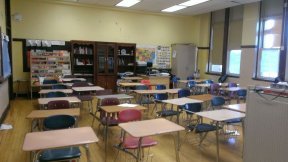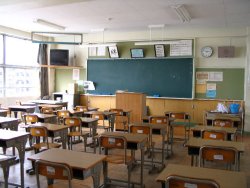
By: Ashmar Mandou
Recently, Chicago Public Schools announced that suspensions continue to decline, with a 41 percent reduction in in-school suspensions and a 76 percent reduction in the rate of out-of-school suspensions since 2012, when the district adopted a revised Student Code of Conduct focused on social and emotional learning. “With the support of dedicated principals, teachers and school staff, CPS has shifted cultures across the district to focus on building stronger school communities,” CPS CEO Forrest Claypool said. “A strong emphasis on restorative practices and social and emotional learning has created unprecedented progress in lowering suspensions, as well as helping students focus on learning when they’re in the classroom.”

Improving school climates through social and emotional learning, restorative practices, interventions and training for school security officers is a key focus outlined in the district’s Vision. Across the district, the total number of suspensions has decreased by 35 percent since last year, and by 65 percent since 2012. Out-of-school suspensions have decreased 28 percent since last year and in-school suspensions have decreased 37 percent. Expulsions have declined 59 percent since 2012. “Principals and teachers understand that creating a supportive learning environment is critical to student success, and other districts from around the country see Chicago classrooms as a model for creating a positive place to learn,” CPS Chief Education Officer Dr. Janice K. Jackson said. “Social-emotional learning is transformative for Chicago’s students and school communities, and we’ll continue to invest and stay on the cutting edge of restorative practices.”
According to CPS, the district continues to invest in initiatives and policies so students have the support they need to thrive in the classroom. The CPS Office of Social and Emotional Learning (OSEL) has trained all principals in adopting proactive social and emotional learning practices in order to create a supportive school for all students, especially those who require extra support and interventions. CPS has also expanded several approaches including training school administrators and staff in the development and implementation of trauma-sensitive schools. Trauma-sensitive schools are safe and respectful environments that enable students to build caring relationships with adults and peers. CPS has also implemented Healing Trauma Together (HTT), a program made possible through a $2.3 million grant through the Department of Education. HTT has built and increased the capacity and restorative offerings of 10 high-need high schools to address the impact of trauma on students, parents and teachers.









